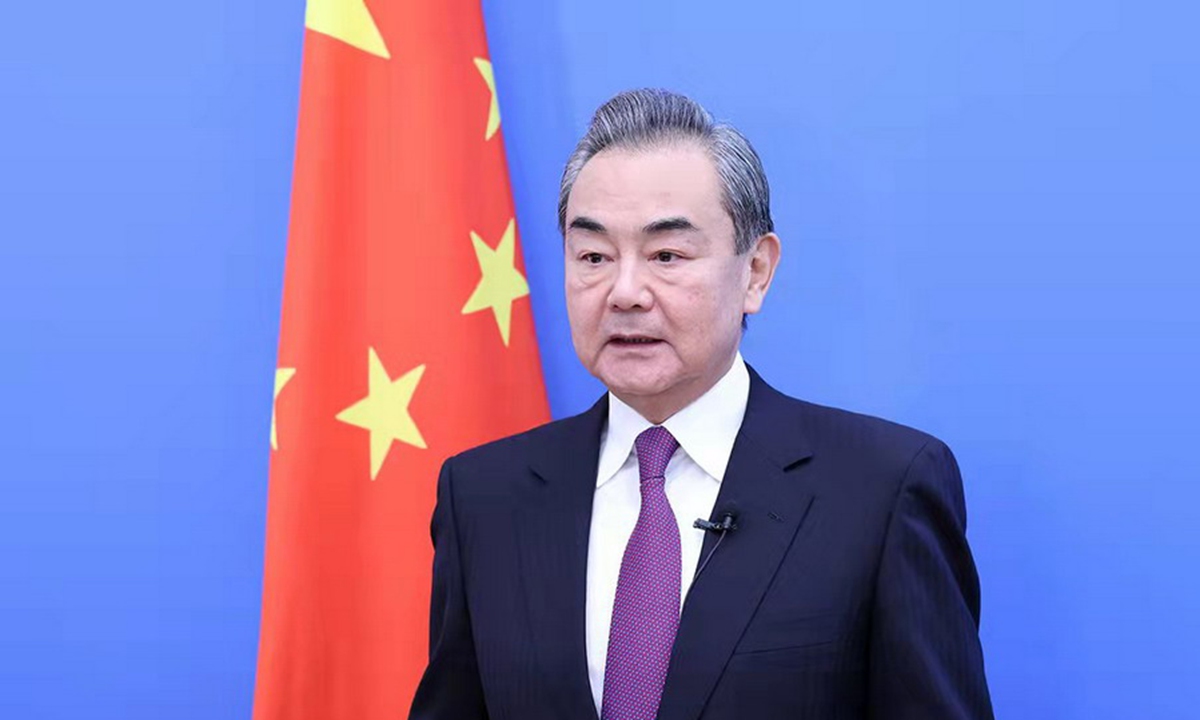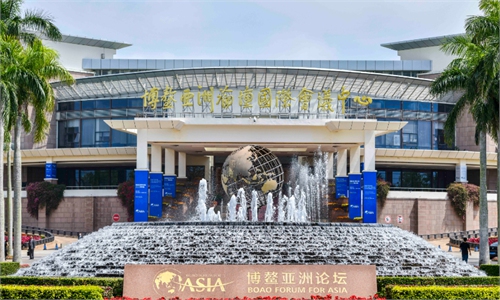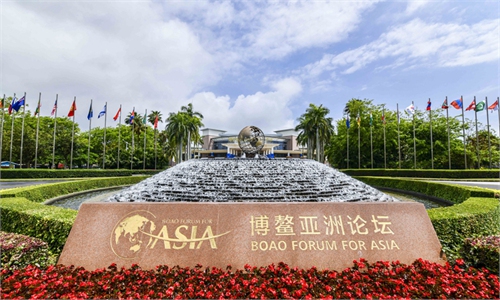Chinese FM elaborates on China-proposed Global Security Initiative, stresses nation will always be the backbone of guarding world peace

Chinese State Councilor and Foreign Minister Wang Yi. Photo: Chinese Foreign Ministry
As Chinese President Xi Jinping proposed for the first time a Global Security Initiative at the opening ceremony of the Boao Forum for Asia Annual Conference 2022, Chinese State Councilor and Foreign Minister Wang Yi gave a detailed elaboration on the initiative in an article published on People's Daily on Sunday, answering to the question: "What kind of security concept does the world need and how can countries achieve common security?"
"The initiative contributes Chinese wisdom to make up for the present peace deficit," Wang said in the article, in which he stressed that China will never claim hegemony, seek expansion or spheres of influence, nor engage in an arms race.
Responding to the urgent need of the international community to maintain world peace and prevent conflict and war, the initiative is proposed at a time when mankind faces the pandemic haze, the rising tensions in Ukraine and various traditional and non-traditional security threats.
At a time like the present, when the world is facing unprecedented danger of divisiveness, the initiative also responds to the common pursuit of multilateralism and global solidarity. At the moment, divisiveness is being fueled by some countries that cling to a Cold War mentality and that are keen to engage in exclusive "small cliques" with false claims of practicing unilateralism in the name of multilateralism and hegemony in the name of democracy.
These countries have seriously undermined the international security order and aggravated the global security governance deficit, Wang said.
The proposed initiative echoes the global need for economic recovery in the post-pandemic era with inflation continuing to rise and various financial crises in view: trade, energy and food crisis are all likely to appear one after the other.
A few countries have introduced unilateral sanctions and "long-arm jurisdiction," insisted on suppressing the economic and scientific development of other countries, which further worsened people's livelihood in countries around the world, especially in developing countries.
The initiative's core concept is that of a shared, comprehensive, cooperative and sustainable security. The proposal also adheres to respecting the sovereignty and territorial integrity of all countries, upholds the purposes and principles of the UN Charter, and is aimed at resolving disputes through peaceful means.
It also takes into account the security concerns of all countries. Wang pointed out that a country's security cannot be guaranteed at the expense of another country's security, nor can regional security be guaranteed by expanding military blocs. The security interests of all countries are equal and interdependent, and should not be ignored and systematically violated over time.
At a time when global security situations are more intertwined, and its contents expand both in time and space, no country can be left alone in face of regional disputes, terrorism, climate change, cyber security, biosecurity and other complex security threats, nor should any country become an island separated from the world.
In the article, Wang elaborated on China's role in adopting the initiative. He said that China, as a responsible global power, has always held high the values of peace, development and mutually beneficiary cooperation. China has made positive contributions to the maintenance of global security, and set an example to other powers in the world.
Since the founding of the People's Republic of China, China has never initiated a war, never invaded an inch of land of another country, never engaged in proxy wars, never participated in or formed any military blocs. It has the best record in the world on peace and security issues.
China remains the only country that includes "adherence to the path of peaceful development" in its Constitution, and the only one of the five nuclear-weapon states that has pledged not to be the first to use nuclear weapons.
Regardless of the extent of its development, China will never claim hegemony, expansion, seek spheres of influence, or engage in an arms race. China will always be committed to guarding world peace and tranquility, Wang stressed.
In terms of fulfilling its international responsibilities, China has by far dispatched the largest number of peacekeepers among permanent members of the UN Security Council and is the second largest contributor to the UN peacekeeping missions. Meanwhile, China has signed or acceded to more than 20 multilateral arms control, disarmament and non-proliferation treaties, including the Treaty on the Non-Proliferation of Nuclear Weapons and the Arms Trade Treaty.
Addressing various non-traditional security challenges, China has provided more than 2.1 billion doses of vaccines to the international community, making active efforts to bridge the "immunization gap," Wang noted.
The article underlined the proposals and aims of the initiative: It proposes that countries should firmly uphold the authority of the UN and jointly practice true multilateralism, adhering to peaceful solutions and political settlements regarding hotspot issues. Moreover, the proposal aims at addressing security threats and improving the global security governance system.
Finally, the initiative also proposes to strike a balance between development and security to promote a strong global economic recovery in the post-pandemic era, and it invites to build regional security to maintain peace and stability in Asia.
Global Times


